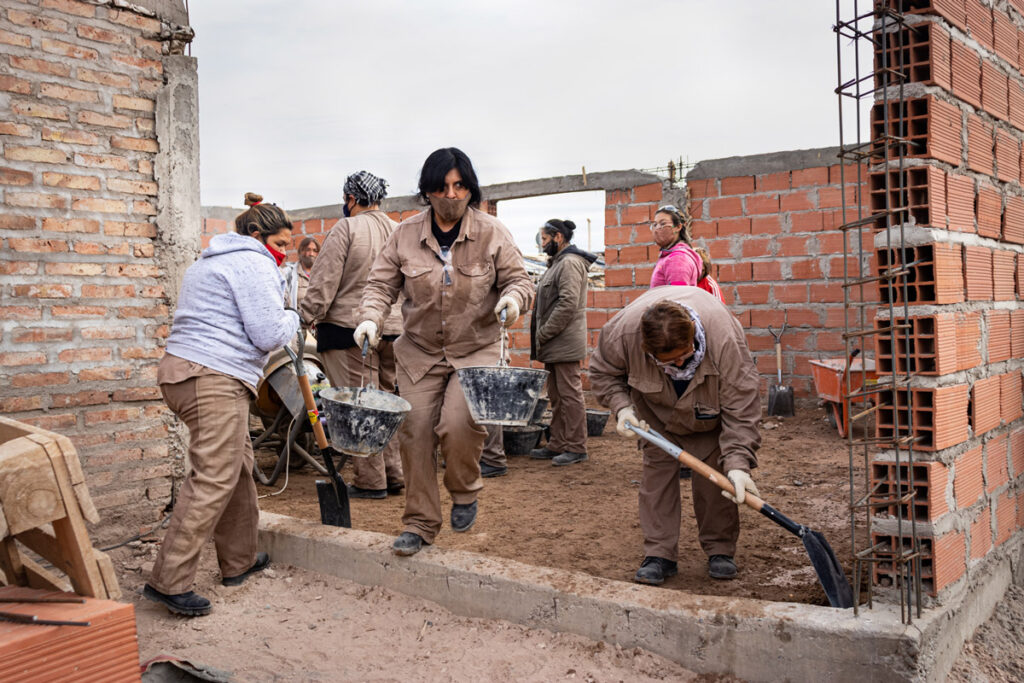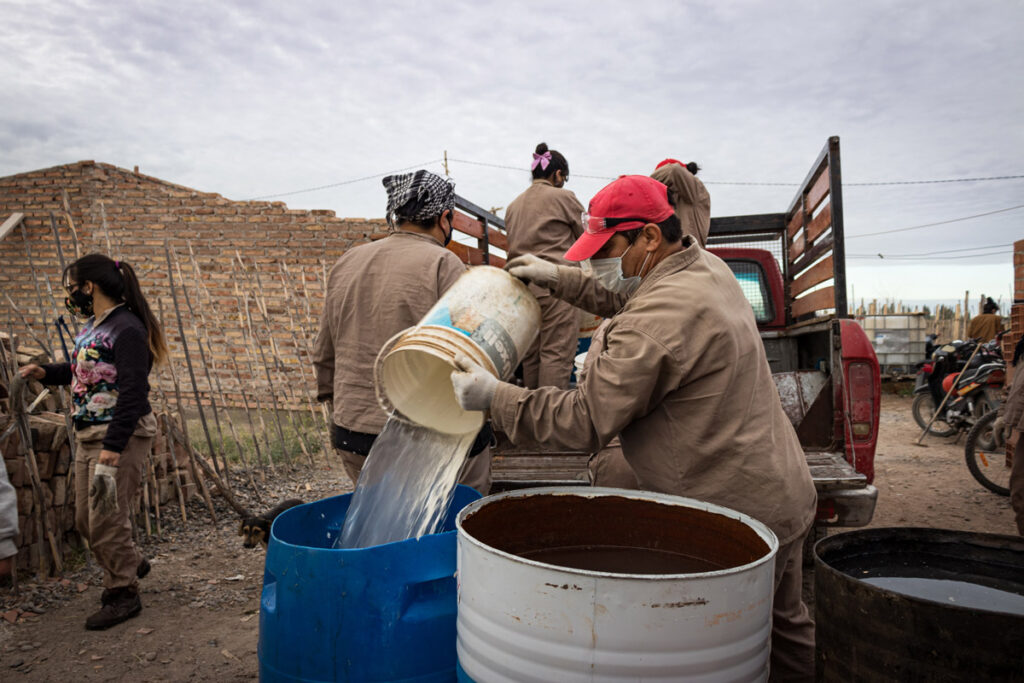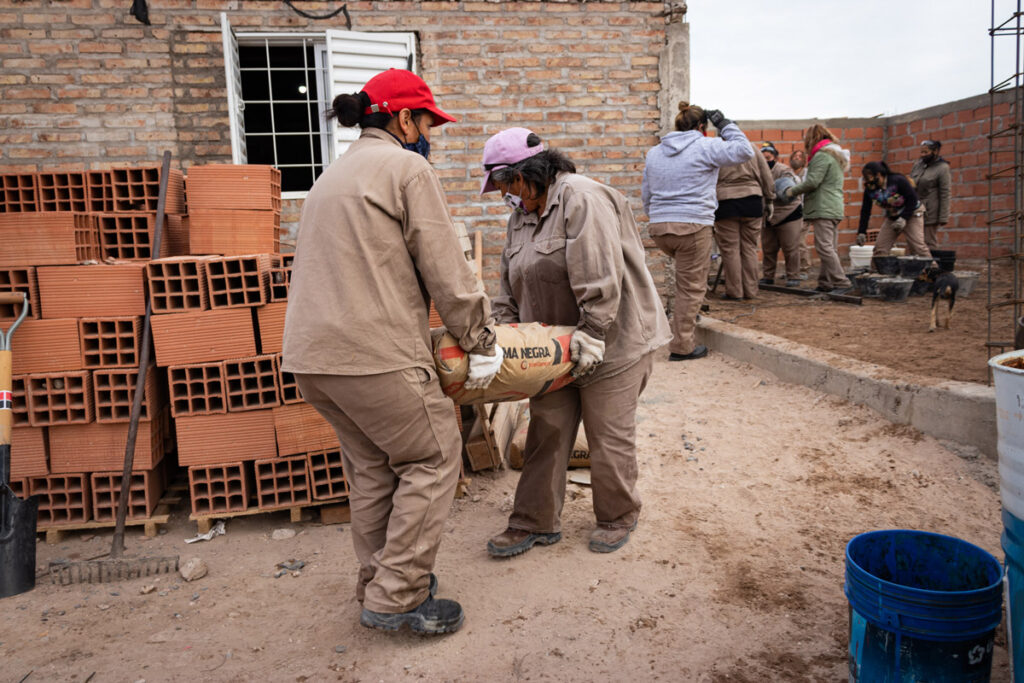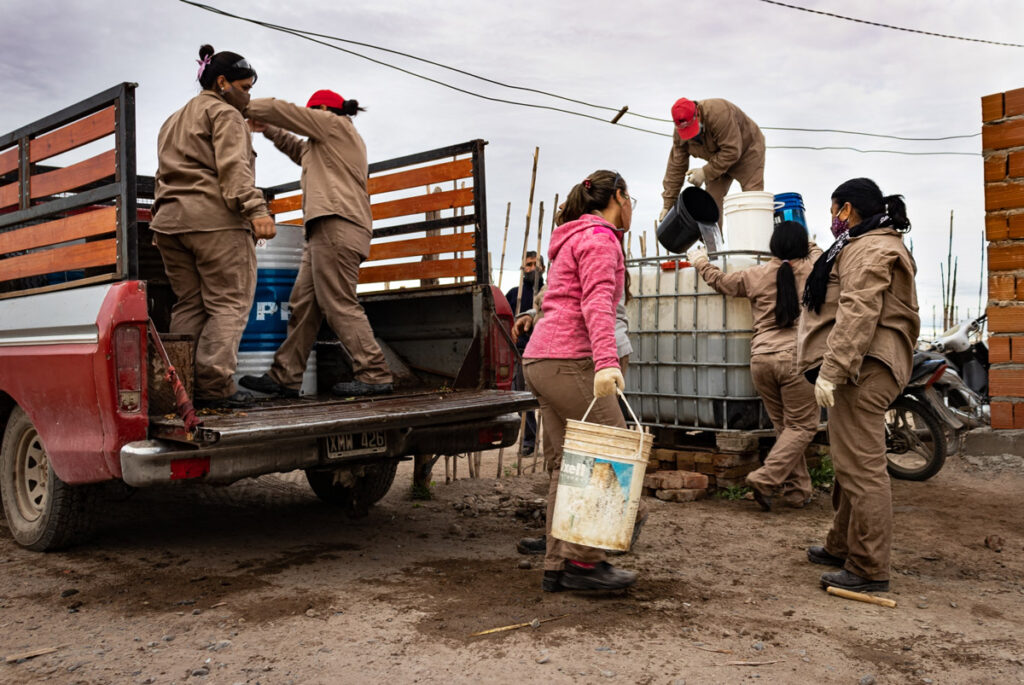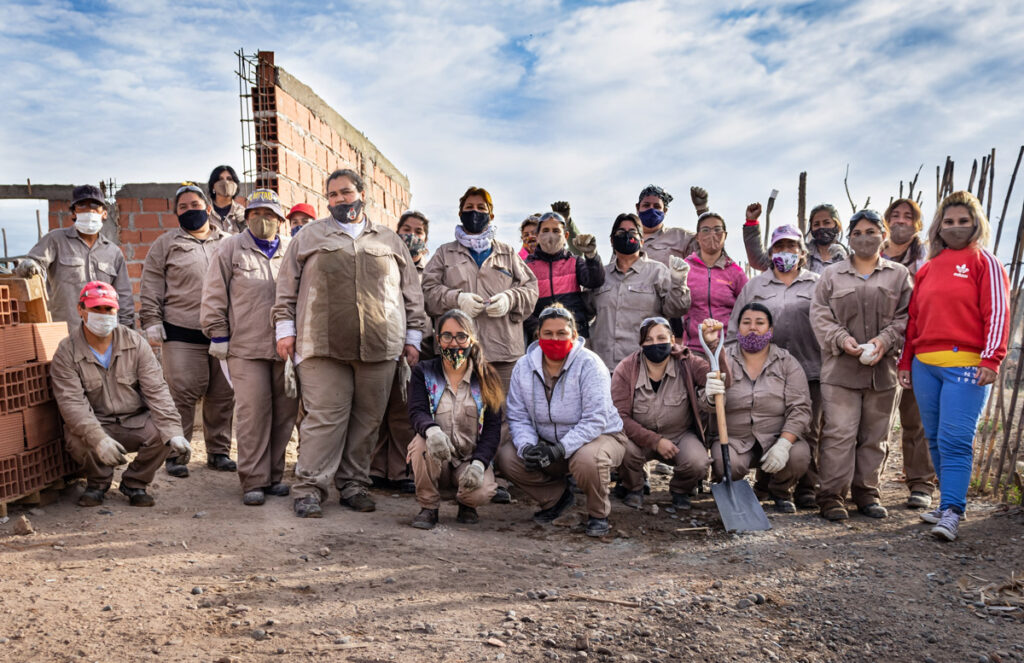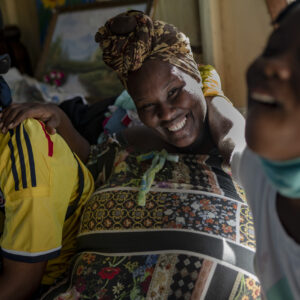“How could we imagine we would be here today? We’re doing it ourselves, together, as women. It has been a source of pride for all our female colleagues and for me,” said Natalia Chávez when asked how she felt after seeing the finished Casita (community house) built by FOL Ruka Newen. Construction began when members of the team, both male and female, decided to build their own space, a space open to the community in the Alta Barda neighbourhood.
During 2020 and 2021, in the midst of the COVID-19 pandemic, a group of 27 female and 3 male construction workers belonging to the FOL masonry crew, worked on the construction of the Ruka Newen community house located in the working-class neighbourhood of Alta Barda in the city of Fiske Menuco, Argentina.
To generate awareness of our experience mobilising neighbours to work together in the name of solidarity and resilience, and how these efforts managed to improve conditions for the people of the neighbourhoods, we premiered a short documentary on May 5, 2021 called, “Albañilas”. The documentary portrays the daily work of the building crew in 2020 and 2021 when the main construction work was carried out. Through various testimonies, it reflects on how the unity among neighbours resulted meaningful change for the community, and also how the organizational process impacted the lives of everyone who participated: from learning a new trade to being able to help other people access decent housing.
In the 2021 short documentary, the team talk about the conditions in which they began building and how they had to raise money to make it a reality: “We started work two years ago. At that time, we did not have lights, we had to go asking for help. We had no running water so we had to go to the canal. It was hard. The team had to think of ways to make money and complete the construction of the community house. We started to make Argentinian donuts, we held Peña folklórica (a traditional Argentinian community party).”
The organised group, Frente de Organizaciones en Lucha, was started in 2015 in the Alta Barda neighbourhood of Fiske Menuco, a neighbourhood located north of the city, some 15 kilometres from the centre. The precarious urbanization that characterises the neighbourhood is clear from the fact that electricity and gas lines do not reach the entire neighbourhood, and, to a large extent, residents lack access to drinking water. The telephone signal is minimal and unstable. Residents fight the cold Patagonian weather by burning scraps of wood and garbage, and survive the summer heat – and pandemics – almost without water, currently because of droughts.
Over the years, we have organized building crews, mobilised people to help clean and maintain public spaces, help with carpentry, sewing, recycling, crafts, and worked in kitchens and canteens. We have also created gender-specific spaces, areas for children and even a space for legal accompaniment with law students from the National University of Comahue. Beyond the physical buildings, we are also building networks of support that improve life for people and the community but above all, we are building solidarity. Currently the organization gathers some 250 people, mostly women.
Claudia is one of them. Reflecting on the project to expand the community centre that began in 2020, she says, “this year I learned many things at the FOL, for example how to cement bricks, put together stirrups, things that my team taught me that have helped me learn to build my house.” When asked how she felt a year after the opening of the community house, Nancy replied, “it was a new learning experience, and led me to believe that there are no barriers to doing all kinds of work.” Collective learning is happening between these women, and it is a powerful tool transforming the living conditions of the community.
The resilience-building and self-development is visible among those working on the projects: “I learned to build. Today some people may tell me, ‘that’s not for you’, but I just call them out for their sexism. I can do it. I now consider myself a qualified person to do this. I do not depend on any man. I owe everything I learned to women, and everything is possible. That is what being a woman builder means to me. Now is the time for equality, I can do everything a man can do”, Ana expressed. In the documentary, Claudia also says that she has friends who cannot believe that she is a builder, “people say that it is not a job for women, but actually yes, it is for women, and it’s a very good job.”
In her interview, Isabel spoke about brining neighbours together to work and how it was positive for her mental health, “participating in the FOL project is a good thing for me, it means a lot, because it gets me out of the house and I can meet with colleagues, have a nice time together. It helps me because if it weren’t for this, I would be going through a tough time. Thanks to this project and to my colleagues, I am getting ahead”.
In the case of the project featured in Albañilas, the community work is largely masonry, but this project is not isolated from other neighbourhood and community project that are happening every day in the territory. The main questions driving these types of projects are: What does the neighbourhood or community need? And how would we like to live in the future? Despite the precarity, we are organizing ourselves to rebuild social ties in a way that also encourages us to fulfil our potential and build capacities as social actors.

